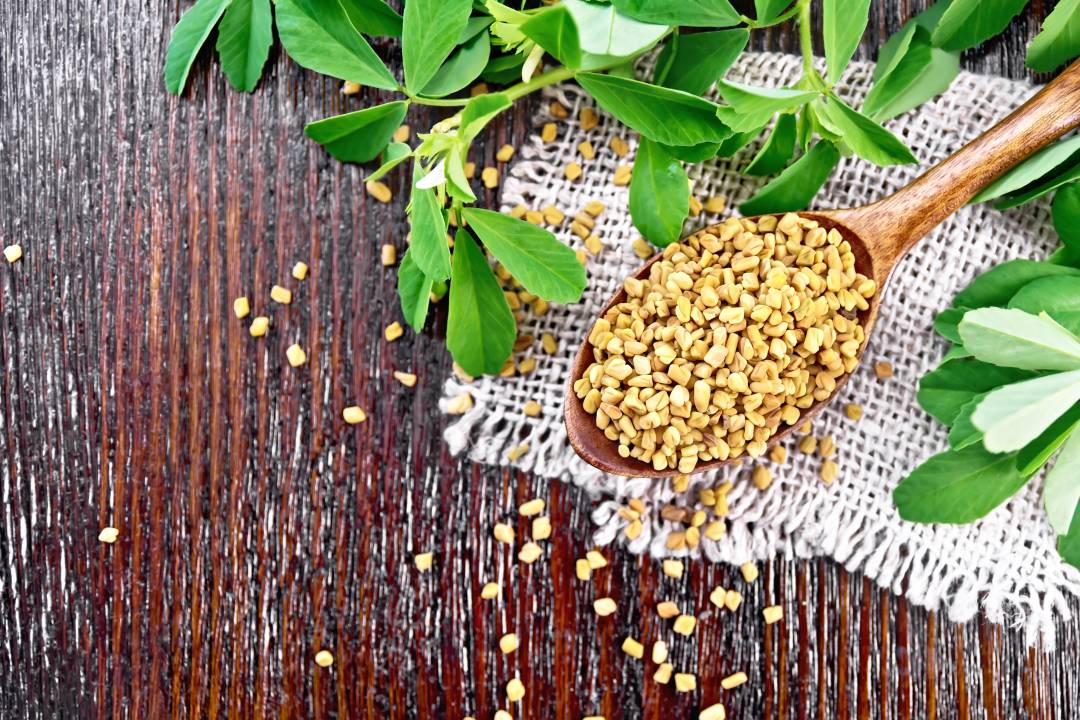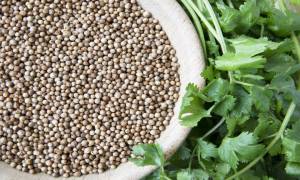1. Introduction
In a world overflowing with synthetic solutions, natural remedies are making a powerful comeback. Among them, Foenegriek stands out as a timeless herb packed with benefits for the body, mind, and overall well-being. Known for its robust aroma and potent healing properties, more than just a spice it’s a complete wellness tool used across cultures for centuries.
This complete guide dives deep into the world, revealing its history, nutritional profile, and its vast range of health benefits, supported by science and tradition alike.
Table of Contents
- Introduction
- What Is Foenegriek?
- Historical Roots and Cultural Significance
- Nutritional Profile
- Top Health Benefits
- Foenegriek and Digestive Wellness
- Foenegriek for Blood Sugar Control
- Role in Heart Health
- Foenegriek in Women’s Health
- Enhancing Male Vitality
- Anti-Inflammatory and Antioxidant Properties
- Foenegriek for Skin and Hair
- Uses in Cooking and Traditional Recipes
- Foenegriek in Modern Supplements
- How to Use Foenegriek Safely
- Dosage and Recommendations
- Potential Side Effects and Contraindications
- Scientific Research Backing
- How to Grow Foenegriek at Home
- Final Thoughts
2. What Is Foenegriek?
Foenegriek, more commonly known in English as fenugreek, is a plant scientifically named Trigonella foenum-graecum. It’s part of the legume family and is grown primarily in Asia, North Africa, and the Mediterranean. The seeds and leaves of are used for culinary and medicinal purposes.
What sets apart is its dual use as a spice and an herbal medicine. Its slightly bitter, nutty flavor makes it a staple in dishes like curries and stews, while its medicinal applications range from improving digestion to enhancing libido.
3. Historical Roots and Cultural Significance
has a long and storied history:
- Ancient Egypt: Used in mummification and as a digestive aid.
- Greek and Roman medicine: Employed as a fever reducer and childbirth aid.
- Ayurveda and Traditional Chinese Medicine: Widely prescribed for balancing hormones, treating arthritis, and increasing energy.
Its name, derived from the Latin “foenum graecum” (Greek hay), reflects its early European association.
4. Nutritional Profile
packed with nutrients that make it incredibly powerful. In 100 grams of seeds, you’ll find:
- Protein: 23g
- Fiber: 25g
- Iron: 33.5 mg (186% DV)
- Magnesium: 191 mg (48% DV)
- Manganese: 1.2 mg
- Vitamin B6, Thiamin, and Niacin
It also contains compounds like saponins, alkaloids, flavonoids, and galactomannans, which are responsible for many of its therapeutic effects.
5. Top Health Benefits
Here’s a look at why is making waves in both natural healing and scientific research:
- Balances blood sugar levels
- Enhances digestive function
- Boosts testosterone and libido
- Supports lactation in breastfeeding women
- Reduces inflammation
- Improves cholesterol profiles
- Aids in weight loss
- Stimulates hair growth
- Promotes radiant skin
Let’s unpack these one by one.
6. Foenegriek and Digestive Wellness
has been used traditionally as a natural laxative and digestive tonic. Its high fiber content and mucilaginous texture soothe the stomach lining, making it effective in:
- Relieving constipation
- Treating gastritis
- Managing acid reflux
- Supporting overall gut health
Its bitter compounds stimulate bile flow, aiding fat digestion and detoxification.
7. Foenegriek for Blood Sugar Control
One of the most studied benefits of is its ability to regulate blood sugar. The soluble fiber in Foenegriek slows down carbohydrate absorption and promotes insulin sensitivity.
Clinical trials have shown:
- Reduced fasting blood glucose levels
- Lower postprandial (after-meal) glucose spikes
- Improved HbA1c in type 2 diabetics
increasingly being added to diabetic meal plans and supplements.
8. Role in Heart Health
contributes to cardiovascular wellness by:
- Lowering LDL cholesterol
- Raising HDL (good) cholesterol
- Reducing triglycerides
- Controlling hypertension through diuretic action
Its antioxidant properties prevent oxidative stress, a major contributor to heart disease.
9. Foenegriek in Women’s Health
In traditional medicine, widely regarded as a woman’s herb.
Benefits include:
- Menstrual regulation: Eases cramps and hormonal imbalance
- Menopause support: Alleviates hot flashes, mood swings
- Breast milk enhancement: Galactagogues in Foenegriek stimulate milk production
It’s one of the few herbs considered safe (in appropriate doses) during lactation.
10. Enhancing Male Vitality
For men, Foenegriek offers a natural way to boost testosterone levels and sexual performance.
Research-backed benefits:
- Increased libido and sexual stamina
- Improved sperm count and motility
- Enhanced muscle mass and strength
- Better mood and energy levels
This makes it popular among athletes and those experiencing age-related hormonal decline.
11. Anti-Inflammatory and Antioxidant Properties
contains diosgenin, a compound with powerful anti-inflammatory effects. It reduces swelling, joint pain, and is useful for conditions like:
- Arthritis
- Gout
- Chronic inflammatory diseases
As an antioxidant, it protects against cellular damage and supports immune function.
12. Foenegriek for Skin and Hair
Applied topically or consumed promotes beauty from the inside out.
Skin Benefits:
- Treats acne and blackheads
- Soothes eczema and dermatitis
- Delays aging and promotes skin firmness
Hair Benefits:
- Prevents hair fall
- Stimulates follicle growth
- Adds shine and softness
- Treats dandruff
seed masks and hair oils are trending in DIY beauty circles.
13. Uses in Cooking and Traditional Recipes
has a unique flavor profile: earthy, slightly bitter, and nutty.
Popular culinary uses:
- Indian curries: Whole seeds or ground powder
- Middle Eastern stews
- Ethiopian spice mix (Berbere)
- Herbal teas
Its sprouts and leaves are used in salads and parathas in South Asia.
14. Foenegriek in Modern Supplements
Due to its growing popularity is now found in:
- Capsules
- Powders
- Liquid extracts
- Herbal blends
Most supplements standardize for saponins and 4-hydroxyisoleucine, which are linked to blood sugar and testosterone support.
Always choose high-quality, organic products free from fillers.
15. How to Use Foenegriek Safely
While effective, Foenegriek should be used mindfully:
- Start with small doses (1-2g/day)
- Soak seeds overnight to reduce bitterness and improve digestibility
- Use in cooking or brew into tea
- Combine with other herbs like turmeric or ginger for synergy
Consult a healthcare provider if pregnant, diabetic, or on medications.
16. Dosage and Recommendations
| Purpose | Typical Dosage |
|---|---|
| General wellness | 2-3g seeds daily |
| Blood sugar management | 5-10g/day in divided doses |
| Lactation support | 3x500mg capsules/day |
| Testosterone boost | 500-600mg extract/day |
Monitor for individual tolerance and adjust accordingly.
17. Potential Side Effects and Contraindications
Foenegriek is generally safe but can cause:
- Nausea or stomach upset
- Body odor (maple syrup smell)
- Allergic reactions (especially if allergic to legumes)
- Interactions with diabetes or blood-thinning medications
Avoid during pregnancy in medicinal amounts due to uterine stimulation.
18. Scientific Research Backing Foenegriek
Multiple studies validate the benefits of Foenegriek:
- Journal of Diabetes & Metabolic Disorders: Demonstrated glucose-lowering effects.
- Phytotherapy Research: Showed improved libido and testosterone.
- Journal of Clinical Pharmacy and Therapeutics: Highlighted cholesterol-lowering benefits.
Ongoing research continues to explore its role in weight loss, cognition, and immunity.
19. How to Grow Foenegriek at Home
Want a fresh, organic supply? Growing Foenegriek is easy:
- Climate: Sunny and warm
- Soil: Loamy and well-drained
- Planting: Sow seeds 1/4-inch deep
- Watering: Moderate, avoid soggy soil
- Harvest: Young leaves (2-3 weeks), seeds (3 months)
You can even grow it in pots or balcony gardens.
20. Final Thoughts
Foenegriek is more than an ancient herb it’s a modern wellness powerhouse. From regulating hormones to enhancing digestion, from revitalizing skin to supporting heart health, the benefits of Foenegriek are as broad as they are profound.
With scientific backing and traditional wisdom aligned, Foenegriek is a top choice for anyone seeking natural health solutions. Whether you incorporate it into meals, take it as a supplement, or apply it topically, the key is consistency and respect for this powerful plant.
Incorporate Foenegriek into your wellness routine and experience the transformation yourself naturally.
Read More: EO Pis: All Benefits Understanding What You Need to Know
















